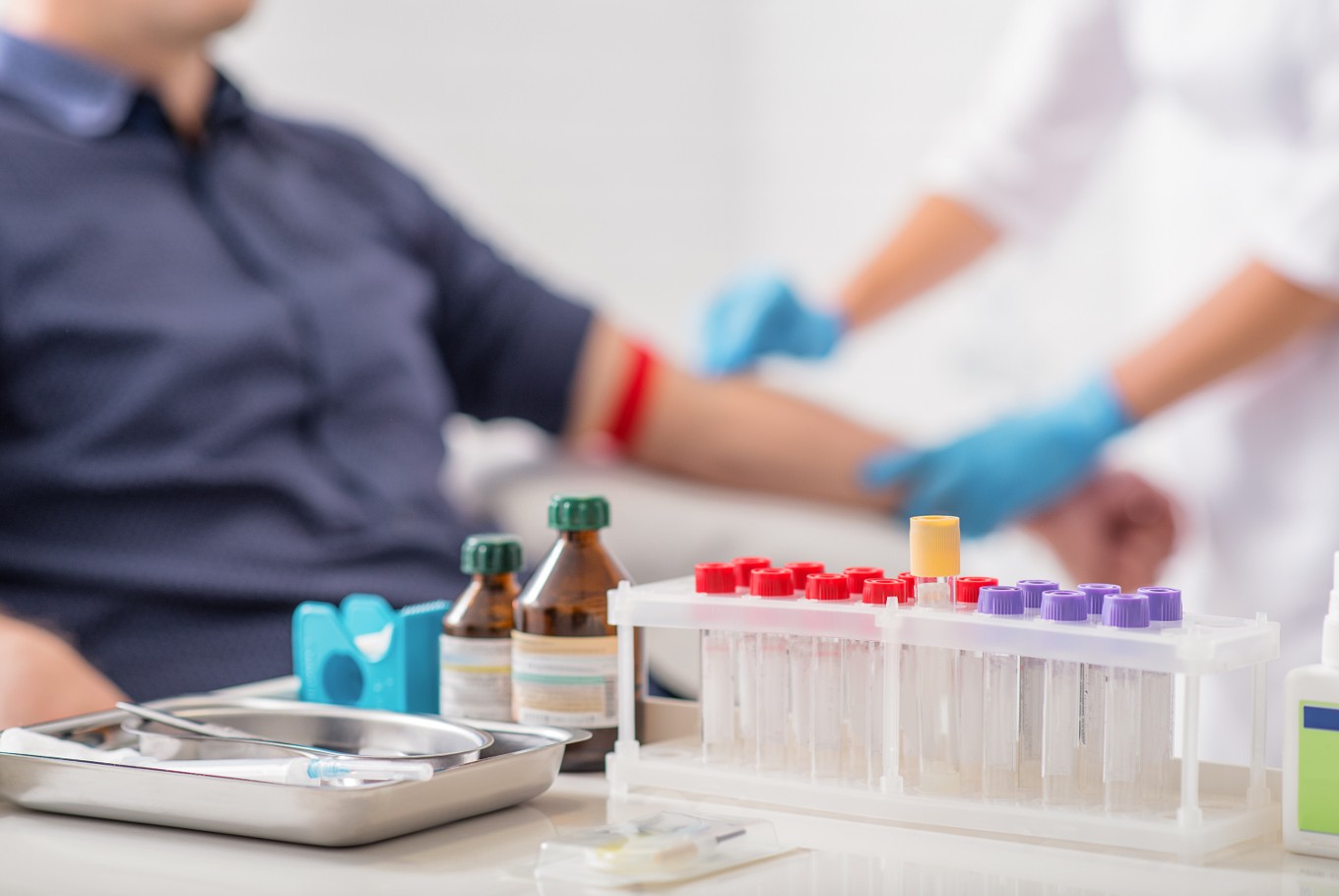Popular Reads
Top Results
Can't find what you're looking for?
View all search resultsPopular Reads
Top Results
Can't find what you're looking for?
View all search resultsCancer blood test finds eight kinds of tumors: study
Change text size
Gift Premium Articles
to Anyone
A
new blood test for cancer has shown promise toward detecting eight different kinds of tumors before they have spread elsewhere in the body, offering hope of early detection, researchers said Thursday.
Further study is needed before the test -- called CancerSEEK -- can be made widely available for its projected cost of about $500, said the report in the journal Science.
The study, led by researchers at Johns Hopkins University, involved 1,005 patients whose cancer -- already pre-diagnosed based on their symptoms -- was detected with an accuracy rate of about 70 percent overall.
Cancers were detected in the ovaries, liver, stomach, pancreas, esophagus, colorectal, lung and breast.
For five of these cancer types -- ovary, liver, stomach, pancreas and esophagus -- there are no screening tests available for people of average risk.
The test was able to detect these five with a sensitivity range of 69 to 98 percent.
In 83 percent of cases, the test was even able to narrow down where the cancer was anatomically located.
The test is noninvasive and based on combined analysis of DNA mutations in 16 cancer genes as well as the levels of 10 circulating protein biomarkers.
Read also: Risk of breast cancer's return looms for 20 years: Study
"The ultimate goal of CancerSEEK is to detect cancer even earlier -- before the disease is symptomatic," said the report.
Outside experts said more research is needed to uncover the true accuracy of the test, and whether it would be able to detect cancers before they cause symptoms.
"This looks promising but with several caveats and a significant amount of further research is needed before we can even contemplate how this might play out in screening settings," said Mangesh Thorat, deputy director of the Barts Clinical Trials Unit at Queen Mary University of London.
"The sensitivity of the test in stage I cancer is quite low, about 40 percent, and even with stage I and II combined it appears to be around 60 percent. So the test will still miss a large proportion of cancers at the stage where we want to diagnose them."
Nicholas Turner, professor of molecular oncology at The Institute of Cancer Research, London, pointed out that the test's one percent false positive rate may sound low but "could be quite a concern for population screening. There could be a lot of people who are told they have cancer, who may not have it."
However, Turner described the paper as "a step along the way to a possible blood test to screen for cancer, and the data presented is convincing from a technical perspective on the blood test."
Many other efforts are under way to develop blood tests for cancer.
"I do not think that this new test has really moved the field of early detection very far forward," said Paul Pharoah, professor of cancer epidemiology at the University of Cambridge.
"It remains a promising, but yet to be proven technology."











